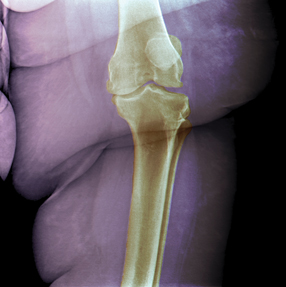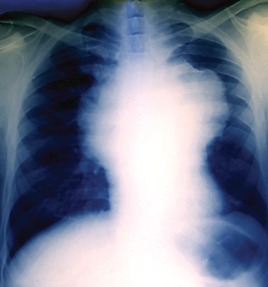NCQA recognizes specialists' efforts at care coordination
The National Committee for Quality Assurance (NCQA) released in March its new Patient-Centered Specialty Practice (PCSP) recognition program, the first standards developed by a nationally recognized quality-promoting organization that reflect a specialty/subspecialty practice's efforts to improve care coordination with primary care physicians.
The National Committee for Quality Assurance (NCQA) released in March its new Patient-Centered Specialty Practice (PCSP) recognition program, the first standards developed by a nationally recognized quality-promoting organization that reflect a specialty/subspecialty practice's efforts to improve care coordination with primary care physicians.
The program, developed to complement NCQA's Patient-Centered Medical Home (PCMH) recognition program, implements recommendations included in an ACP policy paper on the role of the “medical neighborhood” in the PCMH care model.
Extensive data in the literature reflect the significant problems in our health care system regarding care coordination among physicians and other health care professionals. Non-primary care specialists and subspecialists report often receiving inadequate information from referring physicians to conduct effective consultations, while referring primary care physicians often report not receiving the results of requested consults or even knowing whether the referred patient was seen by the specialty practice. This situation leads not only to much dissatisfaction among the care-providing professionals but also to lower quality and less efficient care.
According to a recent report to Congress by the Medicare Payment Advisory Commission (MedPAC), the results of this poor communication and coordination include:
- having to repeat unnecessary medical histories and tests,
- receiving inappropriate and unreconciled medications,
- receiving inconsistent medical instructions or information,
- experiencing poor transitions between sites of care, and
- using higher-intensity settings than necessary, such as emergency departments and hospitals.
The College, which has been a strong advocate of the primary care-oriented PCMH, has been very aware that the ability of this model to fully achieve the goal of improved care coordination depends on the involvement and participation of specialty and subspecialty physicians and other health care providers—the medical neighborhood—who share in providing care to patients.
The PCSP standards, which were developed with the assistance of a multistakeholder advisory committee, reflect the following functions:
- access and communication,
- identification of patient population,
- referral coordination,
- planning and management of care,
- tracking and coordination of care and
- measurement and improvement of performance.
Specialists interested in achieving NCQA PCSP recognition undergo a rigorous independent review to assess their capabilities and commitment to excellence in sharing and using information to coordinate care. The program offers three levels of specialty practice recognition. Level 1 is awarded to practices that meet the minimum score of 25 points (out of 100) and all mandatory (“must-pass”) standards. Practices with higher scores can qualify for higher levels of recognition. As with the NCQA's PCMH program, multiple levels of recognition let practices evolve over time and signal their commitment to purchasers and consumers.
The program's scoring procedures place high value on a practice's ability to engage in effective referrals, bi-directional sharing of relevant patient information and findings, and development of procedures that clarify patient management and comanagement responsibilities.
The importance of facilitating patient involvement in the treatment process is also highlighted, along with the establishment of a culture of continuing quality improvement. The program also supports alignment with the requirements of the Centers for Medicare and Medicaid Services' meaningful use incentive program, which promotes the use of electronic medical records.
Many payers and health plans who were interviewed as part of the development of this new NCQA program or otherwise participated in its development strongly supported the need to recognize specialty/subspecialty practices that are engaging in activities that promote effective interactions with PCMHs, or primary care practices in general. Doing so promotes higher-quality, less costly and more patient-centered care.
Participating specialty practices have a greater likelihood of obtaining a higher-tiered status, being a preferred provider within a health plan, or being invited to participate in developing accountable care organizations and similar entities that require integration and coordination among participating clinicians. They may even qualify for enhanced payments directly as a result of the higher quality and efficiency expected.
More information regarding the NCQA PCSP recognition program is available online.





